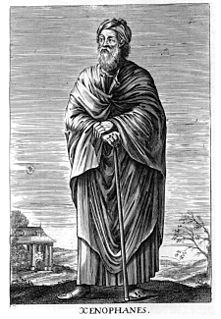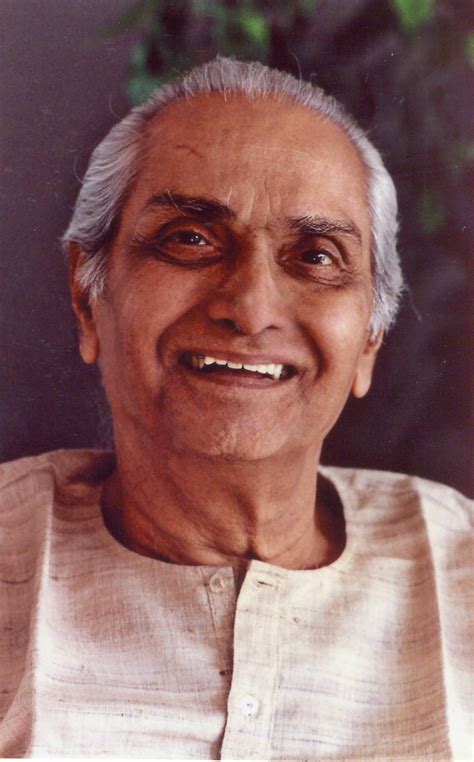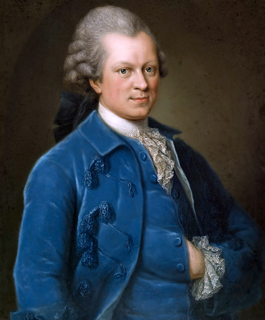A Quote by Nirmala Srivastava
If one introspects and says with humility of heart: "I do not yet know the truth, but I have to find it" , then in time this humility may be rewarded and one may achieve one's ascent. If this happens, the persons attention comes into the center, neither on the left, nor on the right. That is, neither dominated by his conditionings from the past nor the orientations of his ambitious ego. Such a balanced person is very well suited for Self Realization, by which he will know the truth in its absolute form.
Related Quotes
Humility has nothing to do with depreciating ourselves and our gifts in ways we know to be untrue. Even "humble" attitudes can be masks of pride. Humility is that freedom from our self which enables us to be in positions in which we have neither recognition nor importance, neither power nor visibility, and even experience deprivation, and yet have joy and delight. It is the freedom of knowing that we are not in the center of the universe, not even in the center of our own private universe.
Humility is just as much the opposite of self-abasement as it is of self-exaltation. To be humble is not to make comparisons. Secure in its reality, the self is neither better nor worse, bigger nor smaller, than anything else in the universe. It is ? is nothing, yet at the same time one with everything. It is in this sense that humility is absolute self-effacement.
Where there is Love and Wisdom, there is neither Fear nor Ignorance.
Where there is Patience and Humility, there is neither Anger nor Annoyance.
Where there is Poverty and Joy, there is neither Cupidity nor Avarice.
Where there is Peace and Contemplation, there is neither Care nor Restlessness.
Where there is the Fear of God to guard the dwelling, there no enemy can enter.
Where there is Mercy and Prudence, there is neither Excess nor Harshness.
The Gods did not reveal, from the beginning, all things to us, but in the course of time through seeking we may learn & know things better. But as for certain truth no man knows it, nor shall he know it, neither of the Gods nor yet of all things that I speak. For even if by chance he were to utter The Final Truth, he would himself not know it: for all is but a woven web of guesses.
At the still point of the turning world. Neither flesh nor fleshless; Neither from nor towards; at the still point, there the dance is, But neither arrest nor movement. And do not all it fixity, Where past and future are gathered. Neither movement from nor towards, Neither ascent nor decline. Except for the point, the still point, There would be no dance, and there is only the dance.
The establishment of inner harmony is to be attained neither in the past nor in the future, but where the past and future meet, which is the now. When you have attained that point, neither future nor past, neither birth nor death, neither time nor space exist. It is that NOW which is liberation, which is perfect harmony, to which the men of the past and the men of the future must come.
The Lord called me by the way of simplicity and humility, and this way He hath shown me in truth for me and those who will believe and imitate me. And therefore I would that ye name not to me any rule, neither of St. Augustine, nor St. Benedict, nor of Bernard, nor any way or form of living, but that which was mercifully shown and given me by the Lord.
The true value of man is not determined by his possession, supposed or real, of Truth, but rather by his sincere exertion to get to the Truth. It is not possession of Truth by which he extends his powers and in which his ever-growing perfectability is to be found. Possession makes one passive, indolent and proud. If God were to hold all Truth concealed in his right hand, and in his left only the steady and diligent drive for Truth, albeit with the proviso that I would always and forever err in the process, and to offer me the choice, I would with all humility take the left hand.
Neither fear nor self-interest can convert the soul. They may change the appearance, perhaps even the conduct, but never the object of supreme desire... Fear is the motive which constrains the slave; greed binds the selfish man, by which he is tempted when he is drawn away by his own lust and enticed (James 1:14). But neither fear nor self-interest is undefiled, nor can they convert the soul. Only charity can convert the soul, freeing it from unworthy motives.
The historian should be fearless and incorruptible; a man of independence, loving frankness and truth; one who, as the poets says, calls a fig a fig and a spade a spade. He should yield to neither hatred nor affection, not should be unsparing and unpitying. He should be neither shy nor deprecating, but an impartial judge, giving each side all it deserves but no more. He should know in his writing no country and no city; he should bow to no authority and acknowledge no king. He should never consider what this or that man will think, but should state the facts as they really occurred.






























